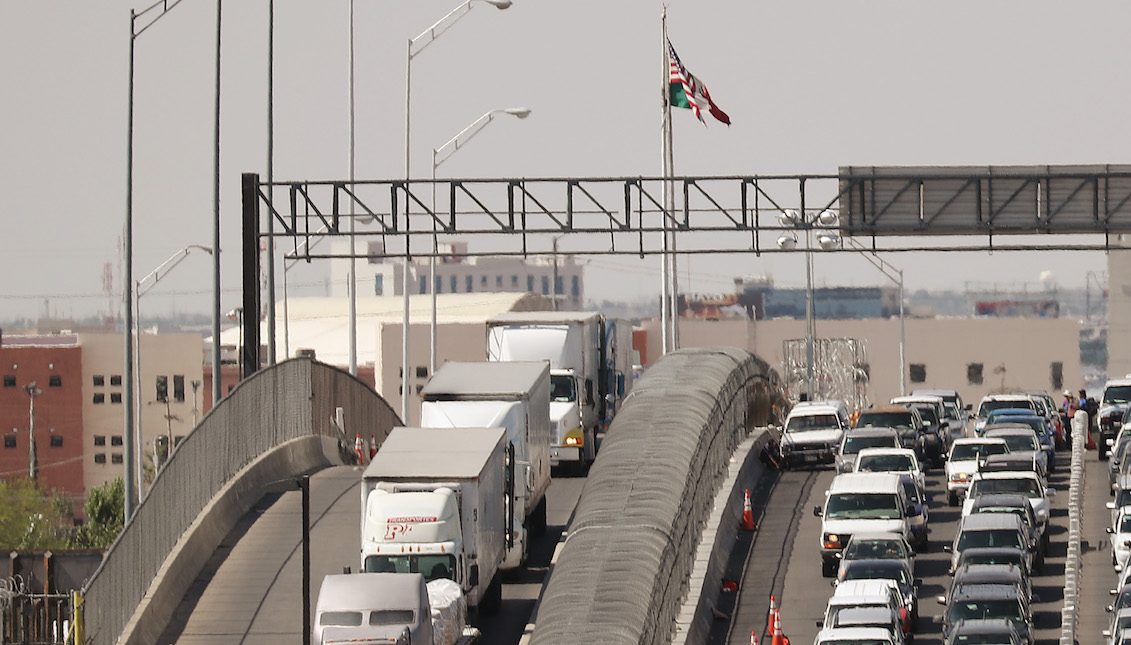
Can Trump solve everything with tariffs?
After his latest threat to impose tariffs on Mexico for not doing something about the immigrant flow at the border, Donald Trump has again resorted to the only…
Associating Donald Trump with money is not just commonplace; it is the only possible connection.
Since his arrival at the White House, the Manhattan tycoon has brought to American politics his supposed "art of the deal," and has transformed the role of the United States on the international scene based solely on finance when it comes to practicing diplomacy.
Add that to his inability to really get something done for the country, and you get a very good summary of his administration.
An example of this has been his perennial battle against immigration.
After failing to build a wall or create a comprehensive immigration policy for the country, Trump has resorted to the only thing he knows how to do: collect money.
During the last few days, his campaign to impose a five-percent tariff on products imported from Mexico has been all over the media, who warn of the consequences of hitting the neighbor when it comes to business.
According to CNN, Mexico has become the most important business partner for the United States thanks to the reformulation of the old Free Trade Agreement, and due to the large amount of money that moves across the border (about $ 50 billion per month, approximately).
The president's proposal to impose non-targeted tariffs on goods - which include everything from vegetables to automobile pieces - has not given the businesses involved time to calculate the impact on the market; however, based on last year’s figures, involved parties such as Deutsche Bank foresee that if the imposition of tariffs becomes a reality, it would add about $1,300 to the price of U.S. cars.
Electronics and oil imports could suffer a similar impact, which would be reflected in the country's workforce.
RELATED CONTENT
A study published by the Perryman Group estimated that "people and businesses in the United States would pay more for Mexican products."
The agency estimates "that the proposed tariffs would lead to an increase in direct costs of approximately $ 28.1 billion each year." After considering the multiplier effects and the net losses in the U.S. economy, the report includes "an estimated 41.5 billion in gross domestic product and 24.6 billion in revenue each year," resulting in a total job loss of around 406,000 that would mainly affect states like Texas.
On the other hand, and in the face of media pressure driven by the Trump Administration, the Mexican government has decided to sit down at the negotiating table to try to comply with some of the demands of the neighboring country.
According to the Washington Post, one of the strategies discussed has been to "dramatically increase Mexico's immigration enforcement efforts and give the United States far more latitude to deport Central Americans seeking asylum."
This new strategy would reform the asylum norms in the region, looking to force Central Americans to "seek refuge in the first foreign country they set foot upon after fleeing their homeland."
Therefore, Guatemalan, Honduran, and Salvadoran immigrants who set foot in U.S. territory could be immediately deported.
Pending failure to reach an agreement during the next few hours, the rates will come into force on Monday, affecting the national economy and making it evident that the U.S. government does not seek to resolve the root problems but to follow the impulses of a man who does not know how to do business










LEAVE A COMMENT: